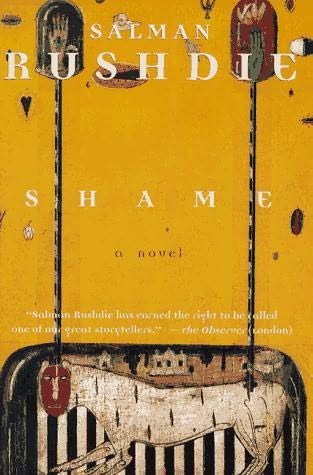
Carrying on from last week's theme of tracks which should be Killer Opening Songs but they are not, our weekly section travels to my birthplace, Cuba. And whilst there we venture into the well-known neighbourhood Buena Vista in west Havana. However, my chiquitines, if you think that this is going to be a post about the famous ensemble of performers put together by Don Juan de Marcos, Nick Gold and Ry Cooder in the mid 90s, you can start filling up your hankies with boogies and tears now, because... no, it's not a column about Cuba's most famous export since beards became equally fashionable almost fifty years ago to the day.
This post is more about why Cuba is such a wonderful place for music, both the creation and the development of it. And if Killer Opening Songs sounds slightly jingoistic this week, I hope you don't mind, please, because K.O.S. won't mind either.
Yusa, our guest tonight, was born in Havana's charming suburb of Buena Vista (yes, Killer Opening Songs is aware of that, too, but to K.O.S. all parts of Havana have their own very special charm, thank you very much). Her music is an eclectic mix of styles which more accurately reflect the musical multiplicity of contemporary Cuban culture. She draws some of her inspiration from the nueva trova traditsion, but has acknowledged in interviews that she has also been influenced by musicians as dissimilar as Led Zeppelin, Djavan, Bobby Carcassés and Sting. Although she has often been compared to Tracy Chapman, the cynic inside Killer Opening Songs thinks that this statement is nothing but laziness on the part of music journalists. If every time we see a guitar-toting black female, the only reference we can come up with is the Cleveland-born chanteuse, then the future looks bleak and grim for performers like Yusa.
Yusa studied at Havana's Amadeo Roldán Conservatory and during her time there, she also picked up the cuban tres (a traditional Cuban guitar with three pairs of double-strings). This shows the fiery side in her as women on the Caribbean island are not known for playing this instrument. She has also been known to play keyboard and bass in her albums.
The track K.O.S. is uploading tonight is included in her second album Breathe from 2005 and is called 'Naufragio (Shipwreck)'. It deals with urban loneliness and desolation. Its opening lines 'Hace frío y quema/Todo tiembla/La calle escupe hielo/El aire se quebró/Partículas de sol/Incrustándose al invierno/Sabores de la escarcha/Vibraciones del color' (This cold is burning me/Everything shakes/The street spits ice/The air is broken/Sun fragments/Frost flavours/Colour vibrations) are heart-rending and dig deep in the listener's soul. The track continues along the same path of hope followed by hopelessness, inspiration destroyed by indifference. That's how we get to the stanza in French and especially the line below, which to me sums up pretty much the feelings and frustrations of the Cuban youth of both the 90s and the noughties: 'Qui t’a dit que l’unique façon de vivre/c’est de vendre ton destin?' (Who told you that the only way to live is by selling out?). This is followed by an even more poignant line still in French: 'la vie nous appelle/on va recommencer a zéro/on va commencer a vivre' (life is calling us, we're going start from zero, we're going to start living). Everytime Killer Opening Songs listens to this particular track and this particular verse, tears moist its eyes and memories of those Cubans long gone, drowned in the choppy waters of the Florida straits or gone on planes Europe or North America bound, come to mind. The song was written by Pavel Urquiza, who, as many of the Cuban readers who pop by this blog regularly know, was one half of one of the most talented outfits in the Havana of the 90s, Gema & Pavel, and one of the most forward-thinking, innovative singer-songwriters from the so-called 'Generacion de los Topos' (Mole Generation).
Why was this track not the Killer Opening Song of this fantastic album? K.O.S. e-mailed Yusa to ask her for her opinion on the matter, highlighting the fact that it was not questioning her decision to slot this song in the 11th position rather than at the top at all. That would be taking this music malarkey a bit too serious. K.O.S. has not had any reply yet, but trusts that Yusa will get in touch with it as soon as possible.
In the meantime, enjoy this live performance by Yusa, a classic example of excellent Cuban music.
For earlier Killer Opening Songs, click on the links below:
Killer Opening Songs (D'Angelo's Brown Sugar)
Killer Opening Songs (Sinéad O'Connor's 'Fire on Babylon')
Killer Opening Songs (Queen's Mustapha)
Killer Opening Songs (Caetano Veloso-Haiti)
Killer Opening Songs (David Bowie - Unwashed and S...
Killer Opening Songs (Massive Attack - Safe From H...
Killer Opening Songs (Bob Brozman)
Killer Opening Songs (Vanessa da Mata - Vermelho)
Killer Opening Songs (The Beatles-Help!)
Killer Opening Songs (Souad Massi-Raoui)
Killer Opening Songs (Habib Koité - Batoumambé)
Killer Opening Songs (Mary Black - No Frontiers)
Killer Opening Songs (Chico Buarque & Milton Nasci...
Killer Opening Songs (David Gilmour - Shine On You...
Killer Opening Songs (Ernesto Lecuona - 'La Compar...
Killer Opening Songs (Chopin 'Fantaisie-Impromptu ...
Copyright 2008







